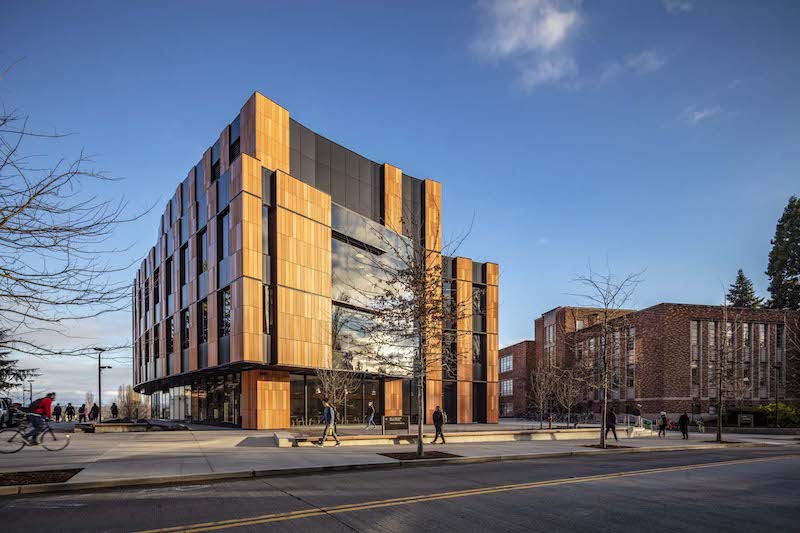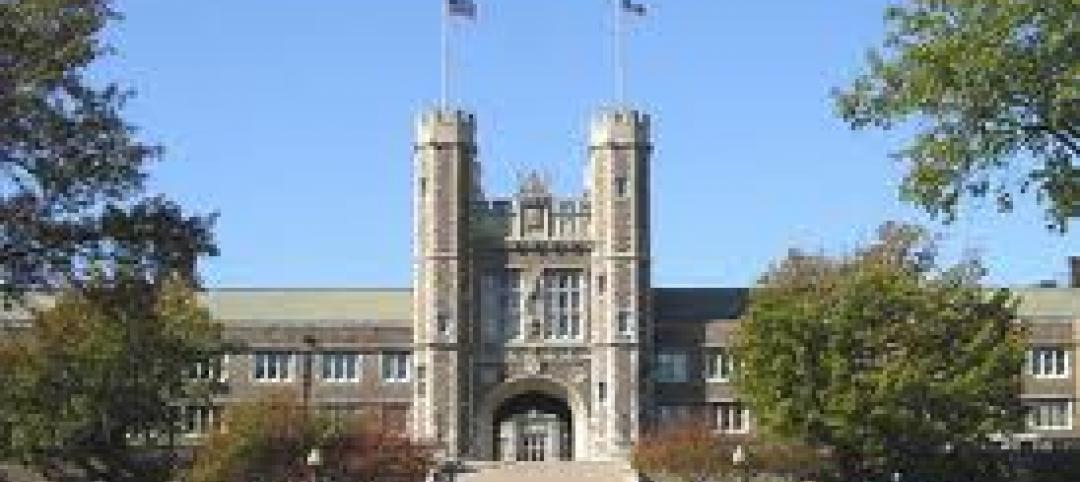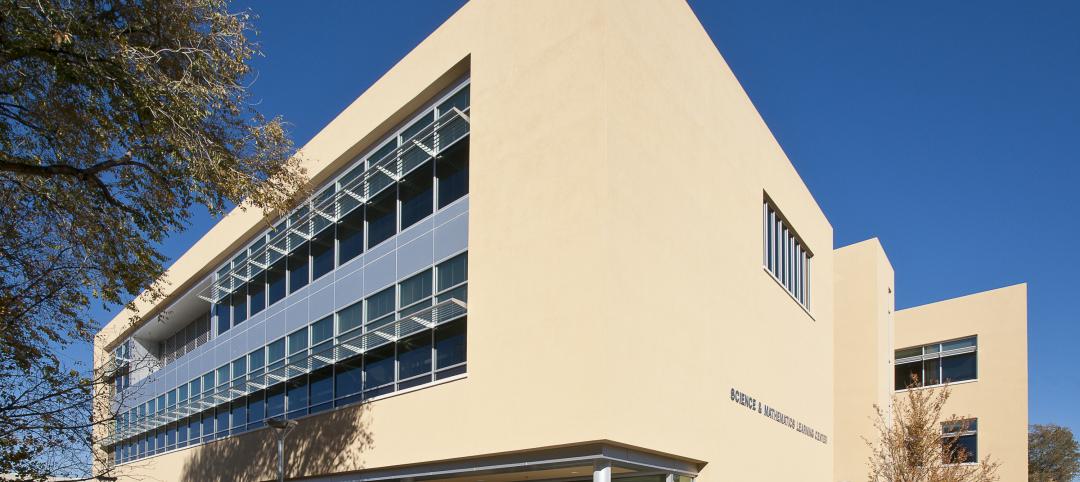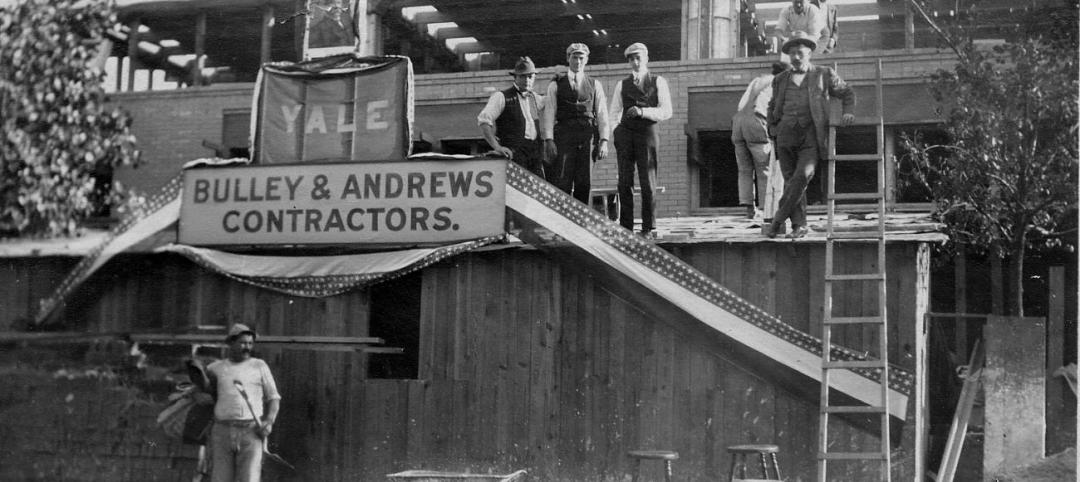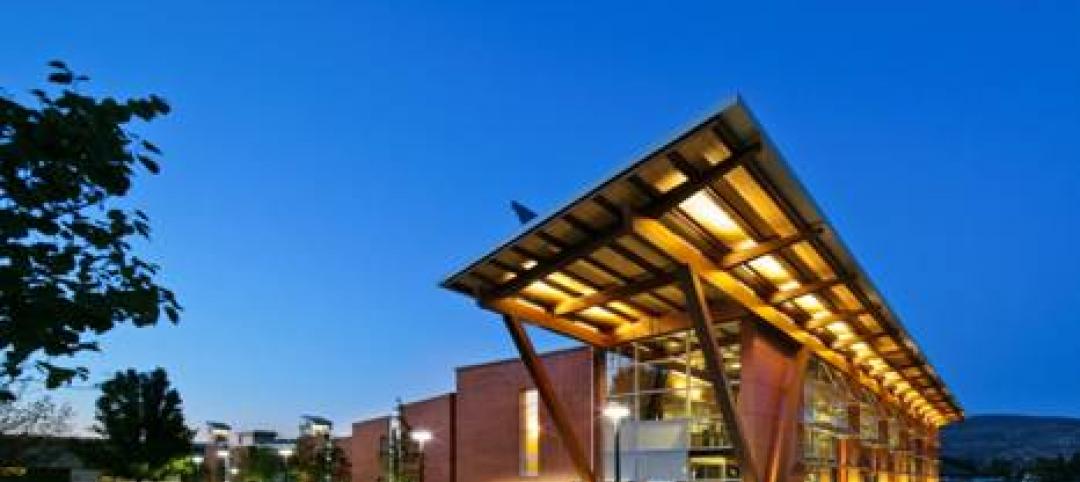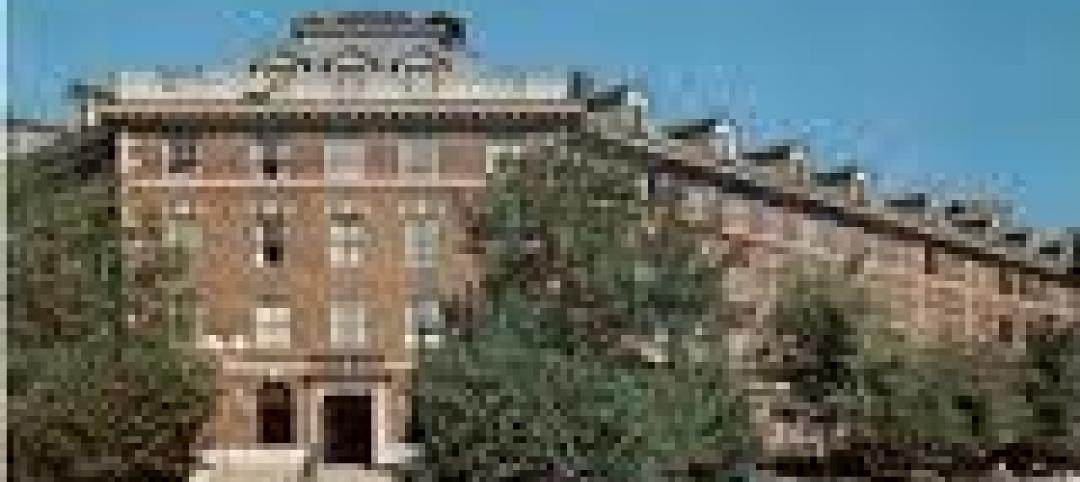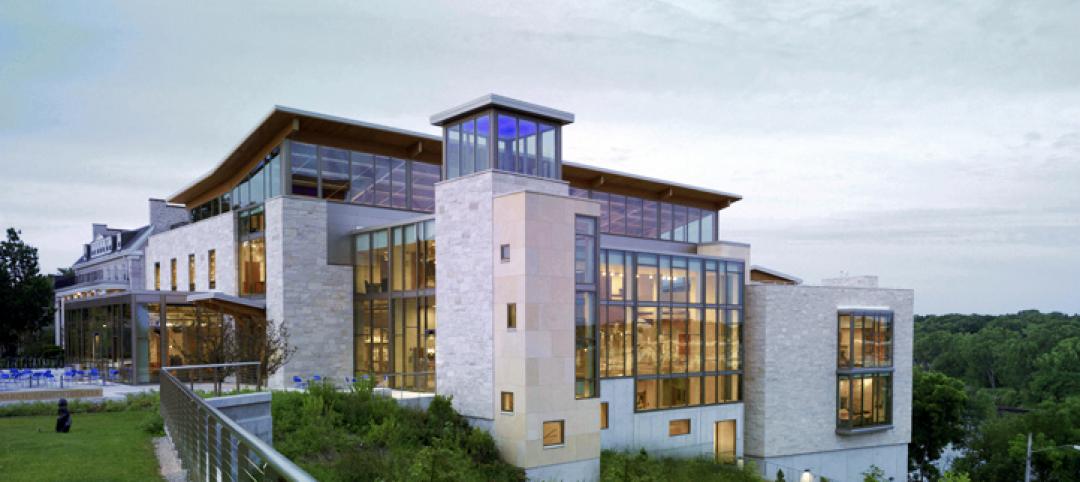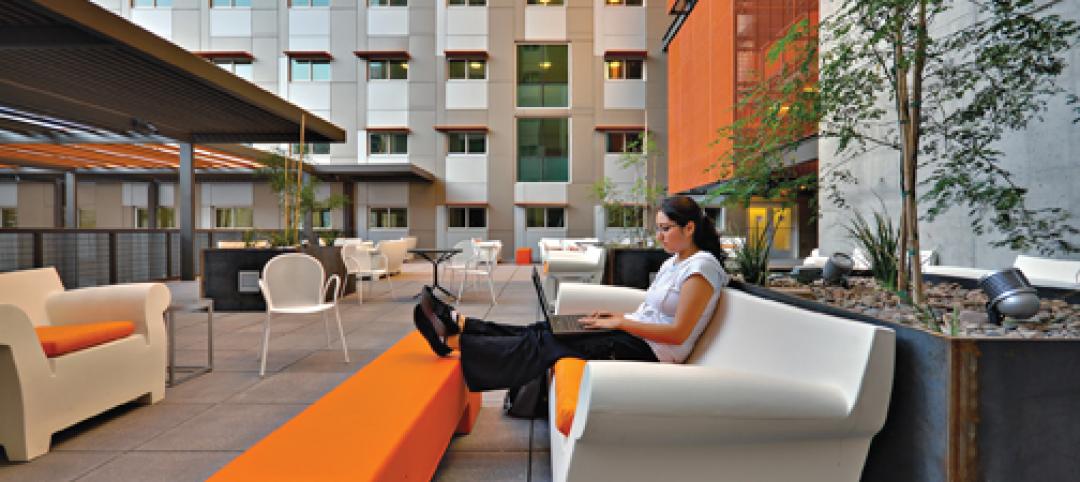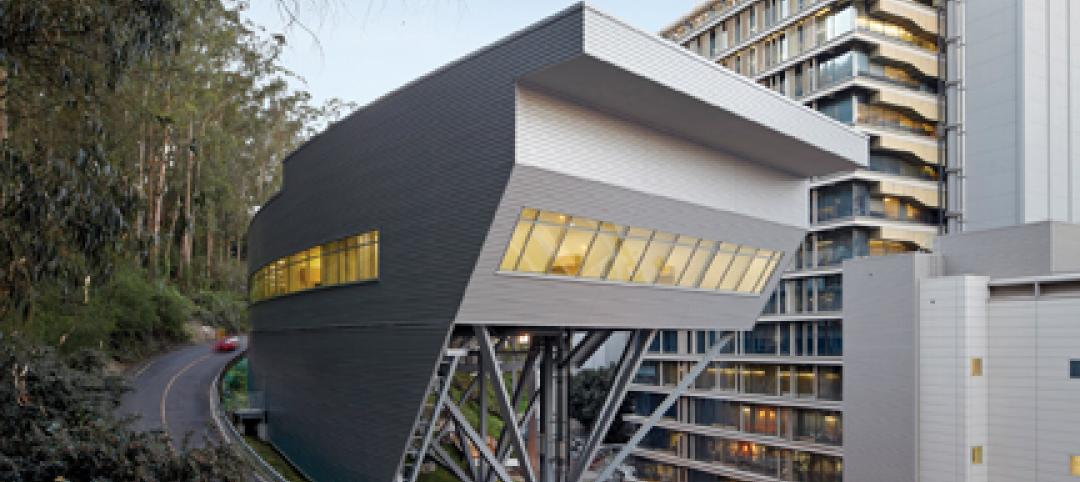Since 2003, the University of Washington’s Paul G. Allen School of Computer Science and Engineering has grown considerably. The program outgrew the existing 165,000 sf building and found itself needing more space.
Enter the Bill & Melinda Gates Center for Computer Science & Engineering. Designed by LMN Architects, the 140,000-sf facility expands the current capacity of the school and provides research spaces, classrooms and lecture spaces, faculty offices, and a new home for the School’s undergraduate majors. A central, naturally-lit atrium provides visual and physical connections to all the floors and acts as the school’s central hub. At the roof-level, an event center will support a wide range of educational needs, industry collaborations, and outreach functions. A cafe activates the primary entry and acts as a transition between the exterior landscape to the central atrium.
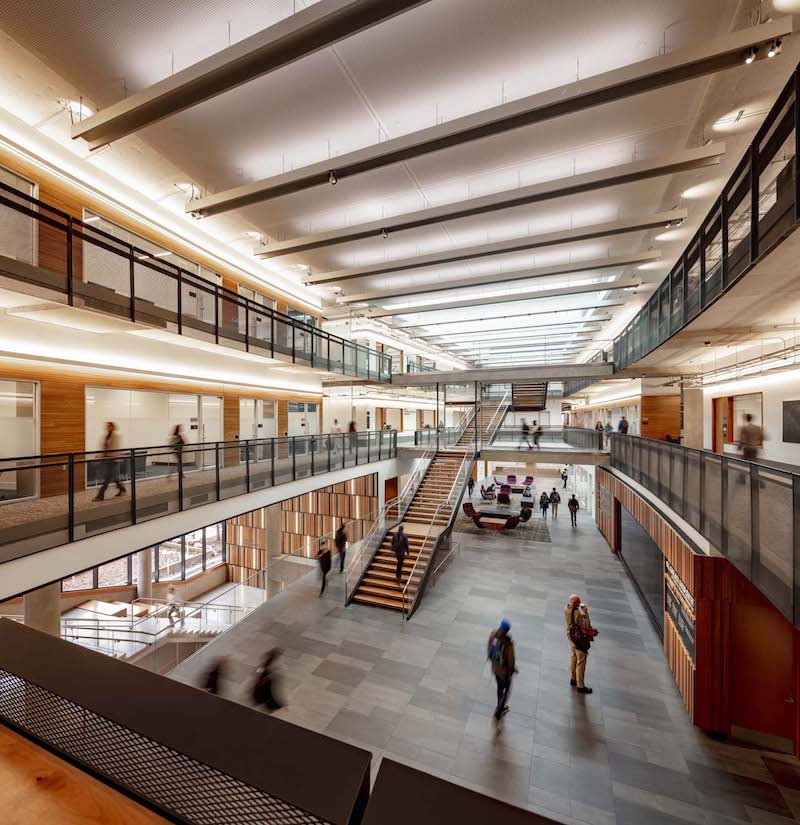
The building’s exterior features a two-sided curving form that responds to the site’s topography and the flow of campus circulation. The building’s facade system of terra cotta panels in four texture types acts as a juxtaposition against the modern black glass and metal.
See Also: University of Arizona Student Success District begins construction
The completed project is targeting LEED New Construction Silver.
Related Stories
| Oct 17, 2011
Clery Act report reveals community colleges lacking integrated mass notification systems
“Detailed Analysis of U.S. College and University Annual Clery Act Reports” study now available.
| Oct 14, 2011
University of New Mexico Science & Math Learning Center attains LEED for Schools Gold
Van H. Gilbert architects enhances sustainability credentials.
| Oct 12, 2011
Bulley & Andrews celebrates 120 years of construction
The family-owned and operated general contractor attributes this significant milestone to the strong foundation built decades ago on honesty, integrity, and service in construction.
| Sep 30, 2011
Design your own floor program
Program allows users to choose from a variety of flooring and line accent colors to create unique floor designs to complement any athletic facility.
| Sep 23, 2011
Okanagan College sets sights on Living Buildings Challenge
The Living Building Challenge requires projects to meet a stringent list of qualifications, including net-zero energy and water consumption, and address critical environmental, social and economic factors.
| Sep 14, 2011
Research shows large gap in safety focus
82% of public, private and 2-year specialized colleges and universities believe they are not very effective at managing safe and secure openings or identities.
| Sep 7, 2011
KSS Architects wins AIA NJ design award
The project was one of three to win the award in the category of Architectural/Non-Residential.
| May 18, 2011
Major Trends in University Residence Halls
They’re not ‘dorms’ anymore. Today’s collegiate housing facilities are lively, state-of-the-art, and green—and a growing sector for Building Teams to explore.
| May 18, 2011
Raphael Viñoly’s serpentine-shaped building snakes up San Francisco hillside
The hillside location for the Ray and Dagmar Dolby Regeneration Medicine building at the University of California, San Francisco, presented a challenge to the Building Team of Raphael Viñoly, SmithGroup, DPR Construction, and Forell/Elsesser Engineers. The 660-foot-long serpentine-shaped building sits on a structural framework 40 to 70 feet off the ground to accommodate the hillside’s steep 60-degree slope.


